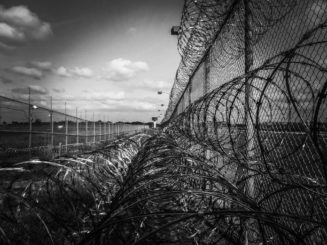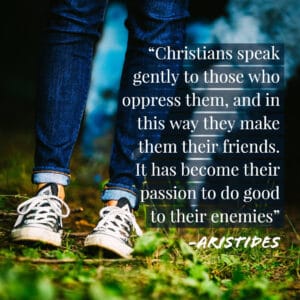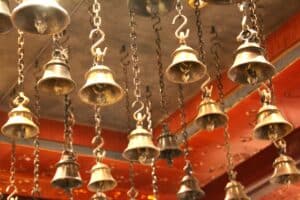
I live in a state of hopelessness.
Pennsylvania is one of the few states that retain both the death penalty and a life-without-parole policy. And the death penalty is the ultimate statement of despair. It essentially says, “This person’s life is not worth living. It is to be either snuffed out or warehoused on Death Row.” And life without parole means just that: Once a prisoner receives a life sentence, s/he has no hope of ever walking free again.
In spite of the fact that many of Pennsylvania’s lifers never directly took another life (convicted instead as accessories, such as look-outs or drivers for armed robberies), the life sentence declares, “No matter how model a prisoner you are, no matter how much you educate yourself and search your soul and mature behind these bars, you will never be fit for society again.”
I don’t get it. Hope—the possibility of healing, regeneration, rebirth—is written into the very DNA of the universe. A broken bone immediately begins to swarm with healthy cells, repairing itself into a stronger version of its prototype. Lifeless bulbs planted in the fall wait out the dark winter to split open and bloom in the warmth and light of spring. Civilizations, too, over time often overcome tragic wars and natural disasters.
Hope—the possibility of healing, regeneration, rebirth—is written into the very DNA of the universe.
The same is true of the human heart. How many times has your heart been rescued and rebuilt over the last decade, or even over the last 10 hours? I frequently need to ask forgiveness of my husband, children, or friends—and when I receive it, I am restored and able to move forward. On an hourly basis, I need to ask forgiveness of God. On any given day, I am given an incalculable number of “second” chances. And sometimes, by the grace of God, I learn from them. Sometimes I am able to step out a stronger, wiser, humbler soul because of the fresh start afforded me.
It takes a degree of meanness to commit a crime, and there are certainly plenty of horrors in this world that can make a man (or woman) mean—poverty, abuse, lovelessness, self-loathing, to name a few. But I think that it is equally true that crime makes a person mean. Imagine what it does to a soul to violate a person’s property, body, or mind; to use and abuse others; to live under the constant fear of getting caught in the act or being betrayed by one’s partners in crime.
In other words, crime springs from a kind of hopelessness, gives rise to wretchedness, and then lands the criminal in a place of ultimate despair. Prison, which should be a place where hope is restored—or discovered for the first time—is, instead, too often a place of futility and dejection. Many people go in without skills or a healthy social network, and then they leave (if they’re not serving life in Pennsylvania, that is) without skills or support. No wonder our correctional system is often referred to as a revolving door. What’s to keep them from coming back?
But this system flies in the face of everything our Creator God is about. God is not a God of holocaust and final solutions, but of rainbows and whales and Promised Lands and resurrections. Our God is a God of rescue and restoration. Listen to these words, which I like to imagine Isaiah belting out, Mahalia Jackson-style, to a spirit-sagging nation:
The LORD has anointed me to preach good news to the poor. He has sent me to bind up the brokenhearted, to proclaim freedom for the captives and release from darkness for the prisoners, to proclaim the year of the LORD’s favor and the day of vengeance of our God, to comfort all who mourn, and provide for those who grieve in Zion—to bestow on them a crown of beauty instead of ashes, the oil of gladness instead of mourning, and a garment of praise instead of a spirit of despair. They will be called oaks of righteousness, a planting of the LORD for the display of his splendor (Isaiah 61:1-3).
God’s vision includes release, not revolving doors; it calls for hope, not despondency. In God’s vision, folks aren’t given $10 and a bus ticket at the prison door; no, they hand over their ashes in exchange for beauty, they trade in their mourning for gladness and their despair for praise. Then they go out to become pillars (oaks) of society. Why? To display God’s splendor!
In God’s vision, folks aren’t given $10 and a bus ticket at the prison door; no, they hand over their ashes in exchange for beauty, they trade in their mourning for gladness and their despair for praise.
Will you pray about and seek out the role you can play in helping captives glorify our Lord? Since we live in a nation boasting the highest rate of incarceration in the world, you won’t have to look far to find someone who could use a friend, a mentor, a job, a home, a second chance. What can you do to plant, water, or tend an oak of righteousness today?
Kristyn Komarnicki is the director of dialogue and convening for Christians for Social Action. She dedicates this article to her dear friend Alvin R. Joyner, who is serving his 48th year of a life sentence in a Pennsylvania prison. He has shown her what hope against all odds looks like, and how God can produce gold in the furnace of affliction. For this she is deeply indebted to him.


